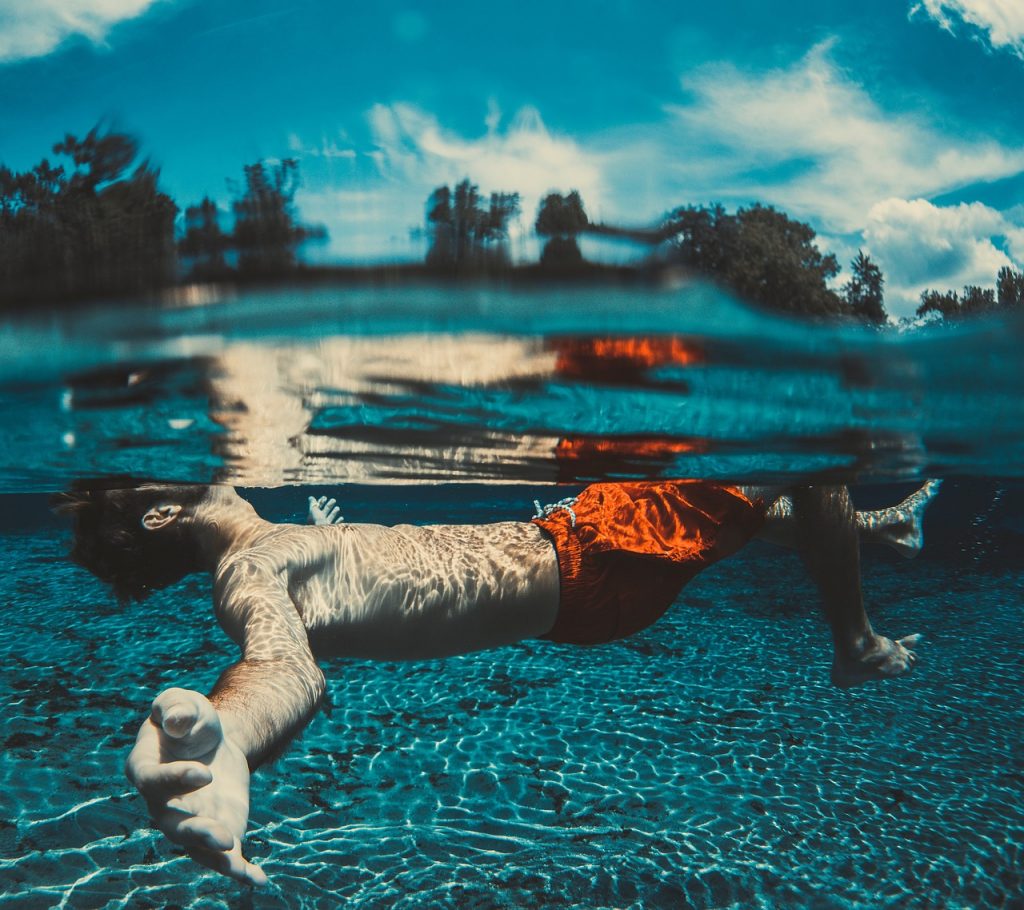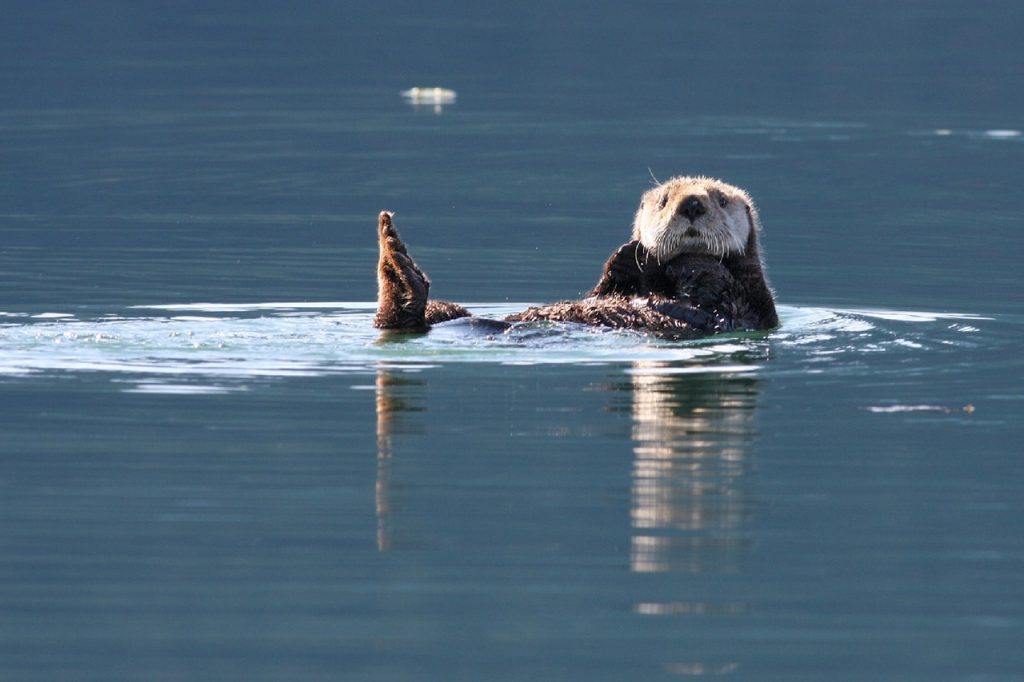Not Just Swimming: 3 Main Senses of Плавать in Russian Posted by Maria on Dec 15, 2016 in language
Плавать is a verb that means either swim or sail in Russian. It is interesting in many ways. As a verb of motion, it has two distinct imperfective aspect forms. In addition, it has useful metaphorical applications.
1. Water Travel
You may remember that verbs of motion have not one but two imperfective forms. Плыть/плавать means to propel yourself in water in some fashion, whether by swimming or by sailing. The difference between the two forms is that плыть is used about a one-way trip with a specific destination while плавать is used to talk about traveling back and forth or with no specific destination.
Мне ничего́ не остава́лось как плыть к бе́регу (I could not help but swim towards the shore). [Фазиль Искандер. Время счастливых находок (1973)]
Коне́чно, что́бы попа́сть в Амстерда́ме в музе́й, ну́жно быть челове́ком недю́жинной во́ли ― шата́ться по у́лицам и́ли пла́вать по кана́лам здесь гора́здо интере́снее, чем вдыха́ть академи́ческую пыль (Naturally, making it to a museum in Amsterdam takes incredible willpower — roaming the streets or sailing the canals is much more interesting here than inhaling academic dust). [Елена Малик. Северная Бавария (2002) // «Автопилот», 2002.05.15]
To talk about knowing how to swim, you would say “Я умею плавать” (not плыть) because it’s a repeated activity with multiple destinations, not a specific lap. In many cases, you can use either verb with slight differences in meaning. Compare: Моряки плывут в Тихом океане vs Моряки плавают в Тихом океане. The first one implies that they are sailing now, on a specific trip, while the second one suggests a repetitive trip or one with many legs.
2. Staying afloat
In this sense плыть/плавать refers to floating in some medium (water, air) without propelling yourself. Fun fact: “float” is also a cognate of плыть.
Бе́лые парашютики пла́вали в во́здухе ― отцвели́ одува́нчики (White parachutes were floating in the air — the dandelions had finished blooming). [Ю. О. Домбровский. Факультет ненужных вещей, часть 1 (1978)]
По гла́ди водохрани́лища плы́ли жёлтые ли́стья (Yellow leaves were floating on the surface of the reservoir). [Даниил Гранин. Зубр (1987)]
3. A Little Fuzzy
A common figurative use of плыть/плавать is based on the metaphor of not being firmly grounded. For instance, when someone has no clear understanding of what they are talking about and cannot back up their claims, we can say “он плавает.”
Поли́ция, кото́рой по до́лжности тре́буется знать свой го́род доскона́льно, здо́рово пла́вает в э́тих вопро́сах (The police, whose professional duty it is to have an exhaustive knowledge of the city, is quite clueless about these things). [Андрей Лазарчук. Все, способные держать оружие… (1995)]
A similar idea applies to a situation where some quantity is not fixed, like an interest rate.
Запре́т на измене́ние усло́вий в односторо́ннем поря́дке банки́ры плани́руют компенси́ровать введе́нием пла́вающих ста́вок (Bankers plan to make up for the ban on unilateral changes in conditions by introducing variable rates). [Банкиры в законе // РБК Daily, 2009.12.10]
Have you seen any of these uses? Is there anything you find confusing or perhaps intuitive about them?

Build vocabulary, practice pronunciation, and more with Transparent Language Online. Available anytime, anywhere, on any device.






Comments:
Doug:
Regarding to the 2nd example in #2 (“По гла́ди водохрани́лища плы́ли жёлтые ли́стья”), is it significant that the author uses плыть instead of плавать? The leaves don’t have a destination, so I would have expected плавать.
Maria:
@Doug Doug, this is a tricky one, isn’t it? If it’s any consolation, the same sentence with плавали does not strike me as wrong. According to Wiktionary (https://en.wiktionary.org/wiki/concrete_verb), concrete verbs like плыть may also refer to a single, complete action, not necessarily to unidirectionality, so it looks like that motivated the choice of the form here.
Looking at the broader context of the passage where this sentence occurred, it does describe the events of a specific evening, so that may be why:
Однажды вечером я застал его ликующим: домашние собрались в кино, он же в самую последнюю минуту отказался идти, остался дома и выиграл два часа превосходного времени. По глади водохранилища плыли желтые листья. Это под водой в разгаре лета осыпались несрубленные березовые рощи. Сердце у него болело при виде больных, заваленных гнилыми бревнами речек, опустевших лесов, озер, затянутых нефтью и грязью. [Loose translation: One night I caught him jubilant — his family decided to go to the movies, and he refused to join at the last moment, stayed home, and won two hours of quality time. Yellow leaves were floating on the surface of the reservoir. These were the uncut birch groves shedding leaves in the middle of the summer under the surface of the water. His heart ached at the sight of sick creeks under heaping rotting logs, the abandoned woods, and lakes covered with oil and dirt.]
Doug:
@Maria Thank you for the extensive reply, Maria!